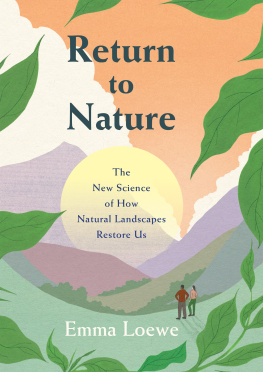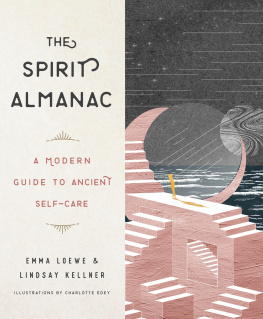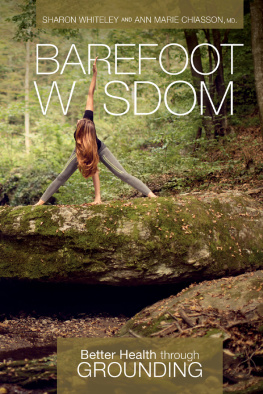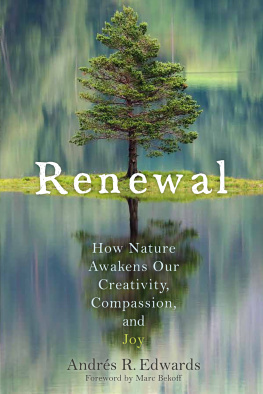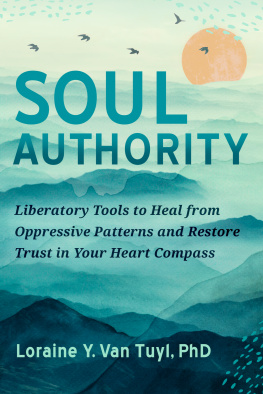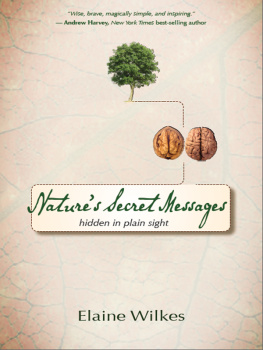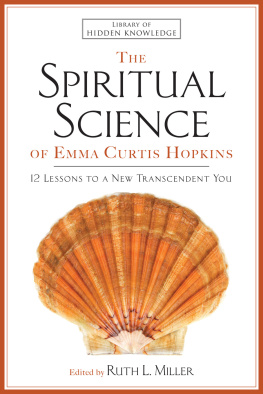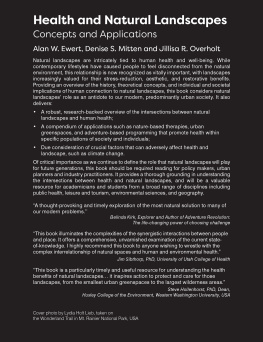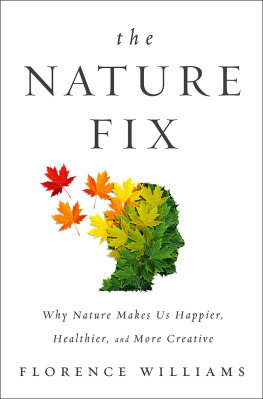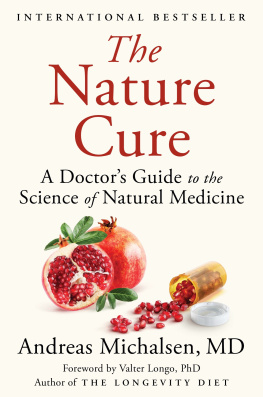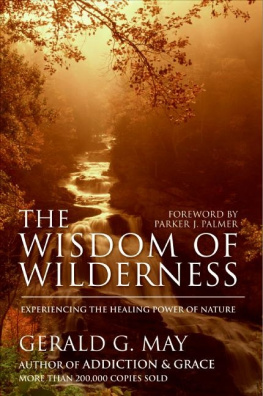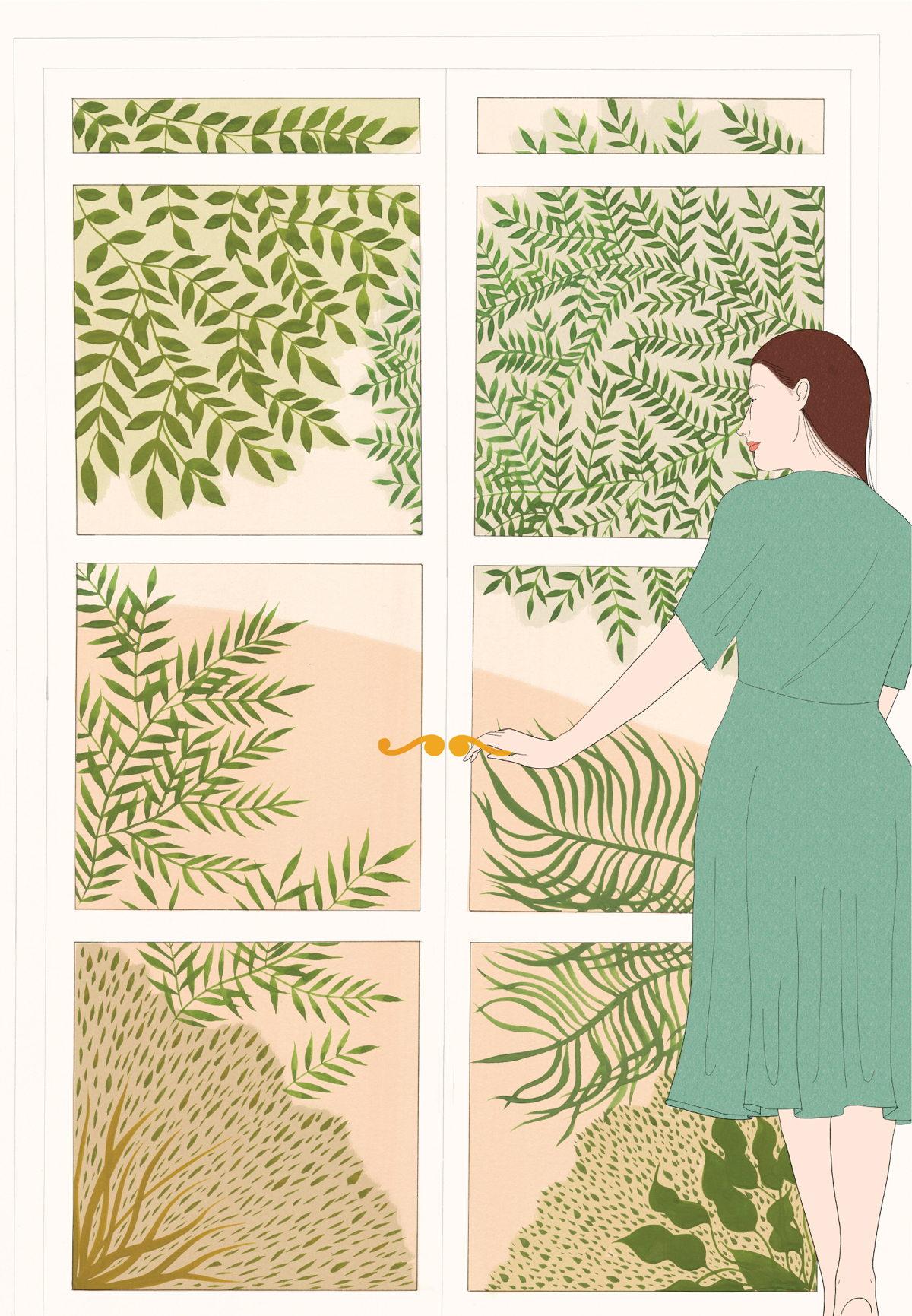Contents
Guide
To naturemy favorite muse
Contents
T he tree was a third parent. It was the first thing I saw when I begrudgingly opened my eyes for the early morning school bus, the last to hold my gaze before bed. Always up for entertaining, its long-lived web of branches was a jungle gym for the local squirrels and birds. It creaked and cawed with age but stayed young at heart, ready to referee backyard games or chaperone barbecues at a moments notice. From my bed pressed against a second-story window, the tree took up the entire view. It was, quite literally, my whole world.
As my memories of my childhood home fade, that maple has stayed with me. The color of the fireplace bricks, the material of the kitchen cabinetsthose details are fuzzy. But the way the tree glowed when the sunlight crept over our roof to hit it just right? Thats clear as day, ingrained to the point that its now just another part of me.
Most people have their own treeor rock, or patch of grass, or beacha part of nature in which they reached some epiphany, had a new joy or pain, or simply grew up. Our experiences in the outdoors have a funny way of sticking with us long after we head back inside, and we, rightfully so, feel some instinct to make more of them.
Signs of this desire to head outside are everywhere: in our technologies (preprogrammed with backgrounds of sugar-glazed Yosemite sunsets, the painterly whoosh of waves, sunlight cutting through tree canopy), in our language (I had a mountain to climb; Im riding the wave; The grass is always greener), in our living spaces (the most desirable homes, after all, always have the best views of the natural world).
And yet, humans are increasingly indoor creatures. According to a survey sponsored by the Environmental Protection Agency in the 1990s,
These days, stepping outside for some air can feel like an act of resistancea blatant disregard for the emails that need to be sent, the projects that need tending to, the family that needs taking care of. Those who can afford to travel get their nature fix on weekends away or faraway vacations, then return for another indoor stint until burnout hits again.
Weve evolved to feel safer, more comfortable, and more productive inside, on our deviceseven though the outdoors is where many of us are our most calm, creative, and captivated. Is it any surprise, then, that levels of stress, anxiety, and overwhelm have reached soaring heights? The World Health Organization has called stress the health epidemic of the twenty-first century and considers depression a leading cause of disability worldwide.
And as our mental health suffers and stress levels climb, the nature we used to turn to for reprieve is disappearing before our eyes. As Im writing this, millions in Texas are without power and water following a once-in-a-century winter blast thought to be exacerbated by warming conditions in the Arctic. Theres no denying it: human-caused emissions are fundamentally changing Earths climate, and theyre already forging an ugly and alarming new world.
Ive spent the last six years watching the climate conversation pick up from behind my computer, as the sustainability editor at mindbodygreen, a health website. In that time, Ive come to believe that these dual emergenciesthe mental health crisis and the climate crisisare intricately connected. Removing ourselves from nature is making us sick, stressed, and profoundly out of sync. And its doing the same thing to our environment. As weve lost touch with nature, weve lost touch with ourselves, and weve hurt our planet in the process. The good news? It doesnt have to be this way.
Return to Nature provides a framework for reconnecting with the outdoors for the sake of our health and the planets. This book proposes a new definition of wellnessone thats rooted in simplicity, self-awareness, and meaningful exchange with the wise and healing world all around.
While its easy to fully immerse in nature when youre on an extended hike or beach getaway, Im more interested in sharing ways to do it every single day, no matter where you live or how much vacation time you have. How can we continue to live in developed cities and the burbs without completely severing ourselves from the natural world? How can we convince ourselves that backing away from our screens and stepping outside is not a luxury but an essential part of being human? How can we see nature not as a place to escape to on the weekends but as a refuge that is always sitting outside our front door? These are some of the questions well be unpacking in the coming pages. And any time we discuss how to get more out of nature, we need to consider what were giving back to it in return, so expect plenty of ideas on how to conserve natural environments near and far along the way. Ready? Our landscape-to-landscape return to nature starts now.
I believe that soon, neuroscientists will tell us that being in the presence of nature lights up our brains the same way as the faces of those we love.... When we step outside, nose to nose, eye to eye, fully immersed in the wild, we are the best versions of ourselves.
WALLACE J. NICHOLS
TED Talk NeuroconservationYour Brain on Nature
The Big Wide World of Research on Nature and Mental Health
If this book were to take the form of my beloved maple, its trunk would be the increasingly sturdy research on the mental health benefits of nature.
Environmental psychology is a field of study that explores the relationship between individuals and the natural and built environment, and its one Ill be referencing often. Since its early days in the 1980s, coalitions of researchers have taken the question Why does spending time outside make us feel so good? and run with itsometimes to parks and beaches, other times to laboratories and VR simulator centers.
At this point, you might be wondering why we need science to reinforce what we already know to be true: that getting outside is healthy. The idea that nature is good for us is nothing new, but reinforcing it with sturdy science can help it spread farther and wider. This research can, for example, be leveraged to protect more natural areas around the world, encourage those in power to invest in nature for the sake of population health, and show physicians that getting outdoors can be an essential health intervention, on par with eating healthily and exercising. By encouraging human-nature interactions, this research can also lead to potentially transformative outdoor experiences. After years of interviewing those on the front lines of the climate movement, Ive noticed that most of them can trace their work back to a memory they or a loved one had outdoors. If I had a solar panel for every time a climate-focused scientist or activist, entrepreneur or engineer, told me a story about a landscape that fueled their work, the US would have met its renewable energy goals already. These experiences in nature have a special way of pushing people to act against climate change from a place of love, reverence, and respectnot fear. I believe that those are the kinds of actions that prove the most effective and enduring.
Like most reporters covering climate change, Ive written my share of terrifying stories about terrifying things (and felt terrified afterward). But Im increasingly convinced that fear alone wont elicit the changes we need. Love might. So with this book, Im taking a different approach. Im choosing to explore what a more loving and reciprocal relationship with nature can look like, starting with the science of what makes this relationship special.

